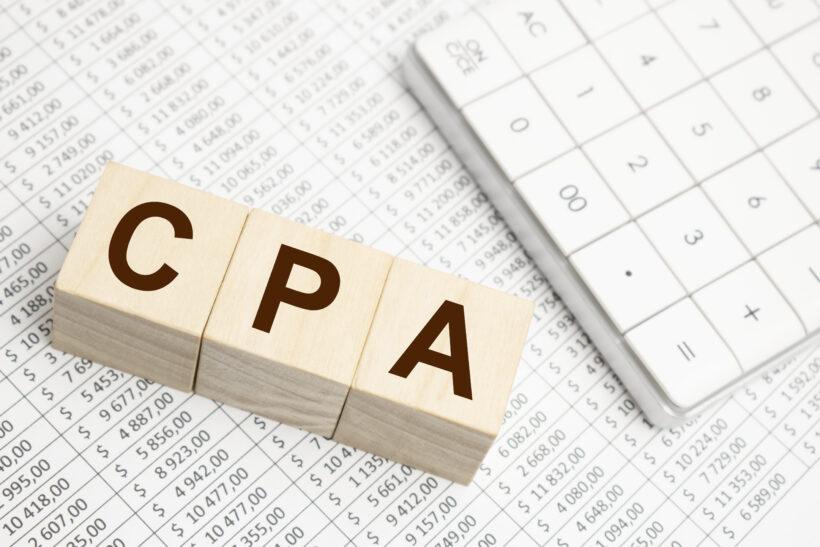Certified Public Accountant (CPA) is a prestigious professional designation in the field of accounting and finance. Whether you’re a student considering a career in accounting or a professional looking to advance your credentials, understanding the ins and outs of the CPA designation is essential. In this article, we’ll delve into the key aspects of CPA, from its definition to its benefits and requirements.
What is a CPA?
A Certified Public Accountant (CPA) is a licensed accounting professional who has met specific education, examination, and experience requirements set by the relevant licensing authority in their jurisdiction. CPAs are financial experts who offer a wide range of services, including financial planning, auditing, taxation, forensic accounting, and consulting.

Who should pursue the CPA Designation?
The CPA designation is relevant for individuals who aspire to build a career in accounting, finance, or related fields. It’s particularly valuable for those who aim to work in public accounting firms, corporate finance departments, governmental agencies, or as independent consultants. The designation is not limited to a specific industry, as CPAs are in demand across various sectors due to their expertise in financial matters.
How to Become a CPA?
Becoming a CPA involves several steps, which may vary slightly depending on the jurisdiction you’re in. However, the general process includes:
- Education: Most jurisdictions require candidates to have at least a bachelor’s degree in accounting or a related field. Some states may require additional coursework beyond the degree.
- Exam: Passing the Uniform CPA Examination is a crucial step. This exam assesses candidates’ knowledge in auditing and attestation, business environment and concepts, financial accounting and reporting, and regulation.
- Experience: Many jurisdictions mandate a certain number of hours of relevant work experience under the supervision of a licensed CPA. This could involve working in public accounting, corporate finance, or a related area.
- Ethics Course: Completion of an ethics course is often required to ensure that CPAs adhere to high ethical standards in their professional practice.
- Licensing Application: After fulfilling the education, exam, and experience requirements, candidates can apply for their CPA license from the state board of accountancy.
Cost of Becoming a CPA:

The cost of becoming a CPA includes various components such as exam fees, education costs, study materials, and potential review courses. Exam fees can add up, especially if retakes are necessary. Additionally, candidates often invest in review courses and study materials to adequately prepare for the challenging CPA exam.
Salary Potential:
CPAs typically enjoy competitive salaries due to their expertise and the high demand for their services. So, the salary can vary based on factors like location, experience, industry, and job role. Early-career CPAs can expect a solid starting salary, while as they gain experience and specialize, their earning potential increases. CPAs in leadership positions, such as CFOs, often command impressive salaries.
Benefits of Being a CPA:
Becoming a Certified public accountant offers numerous benefits, including:

- Career Opportunities: The CPA designation opens doors to diverse career paths, from auditing and taxation to financial consulting and forensic accounting.
- Credibility: CPAs are respected professionals known for their financial expertise and ethical standards.
- Job Security: The demand for CPAs remains consistent even in economic downturns, well because almost all businesses require financial guidance in all market conditions.
- Mobility: A CPA license is often recognized across jurisdictions, while allowing CPAs to pursue opportunities in different states or countries.
- Skill Enhancement: The process of becoming a CPA equips individuals with valuable skills in analysis, problem-solving, communication, and more.
In conclusion
The journey to becoming a CPA requires dedication, hard work, and a commitment to maintaining high ethical standards. Thus, this designation offers a rewarding career path with opportunities for growth, competitive salaries, and the chance to make a significant impact in the world of finance and business. So, If you’re interested in accounting & aspire to take your career to new heights, pursuing the this course could be a transformative step.
Disclaimer: The information provided in this blog is for educational purposes only. It should not a financial advice. Every individual’s financial situation is unique; consider consulting with a professional for personalized advice.
To read more, click here
Thank You For Reading, feel free to ask any questions in the comment section below.
Follow us on Social Media Platforms,
Click Here: Instagram, Facebook, YouTube, and Twitter
Stay Informed, Stay Responsible with My Finance World!










